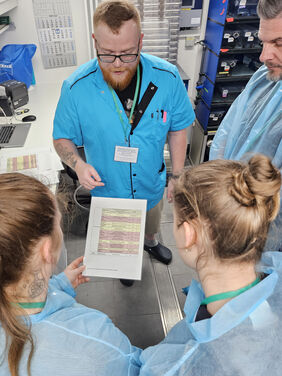Jena. Animal experiments play an indispensable role in the research of diseases and the development of life-saving drugs and therapies. Dedicated animal keepers in research institutes, together with scientists and veterinarians, ensure the welfare of the animals and guarantee the quality and reliability of data. In particular, the loving care and expertise of the animal keepers help to ensure that the animals receive the best possible care and have an environment that is as stress-free as possible.
The Leibniz Institute on Aging - Fritz Lipmann Institute (FLI) is one of 20 Leibniz Institutes of the Leibniz Association that rely on animal experiments. Basic research is carried out here with the aim of developing new therapies, treatment approaches and technologies to improve health in old age.
The associated challenges were now the topic of the spring conference of the IGTP (Interest Group of Animal Keepers) organized by the Friedrich Schiller University Jena and the University Hospital Jena. The presentations and discussions were supplemented by workshops at the FLI. Here, specific health aspects of fish and mice were highlighted - and the latest technical and digital possibilities in modern animal husbandry were presented.
"The interest was enormous," sums up Dr. Beate Hoppe, Head Animal Facility Fish. And her colleague Dr. Hellen Ahrens, Head Animal Facility Mouse, adds: "We see this as confirmation that we are performing our daily work at the highest level. And it also confirms that we are doing a lot of things right with our open and transparent way of working. For responsible research."
Detailed information on this topic can be found at
.









